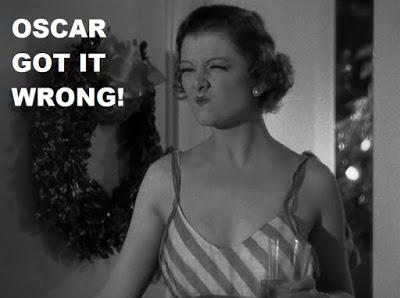Stephen Daldry: Billy Elliot
Ang Lee: Crouching Tiger, Hidden Dragon
Steven Soderbergh: Erin Brockovich
Ridley Scott: Gladiator
Steven Soderbergh: Traffic (winner)
What’s Missing
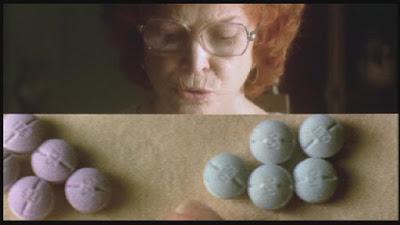
It’s always interesting when 40% of the nominations are taken by a single name (and 60% of the nominations are named Steve). That being the case, it’s not really surprising that Steven Soderbergh won this Oscar for one film or the other. That said, I think there’s a lot of room for improvement in this list. The Cell isn’t a good movie, but it’s visually amazing, and much of that credit goes to Tarsem Singh. Christopher Guest puts a great deal of trust in the people he works with, and in 2000 that resulted in Best in Show. Another unlikely presence here is Wolfgang Petersen for The Perfect Storm, a flawed movie that is nonetheless visually arresting in many ways. There is, though, a list of five snubs that I think rival the actual five nominations in many ways. This starts with the Coens and O Brother, Where Art Thou? and Christopher Nolan’s Memento. More impressive than those is Wong Kar-wai’s work on In the Mood for Love, which was probably ignored because Ang Lee got the “not in English” nomination. American Psycho was too radical for consideration, but it works entirely because of Mary Harron’s tight direction. The biggest miss here, though, is ignoring Darren Aronofsky and Requiem for a Dream.
Weeding through the Nominees

5. Steven Soderbergh didn’t need to be on this list of nominations twice because Erin Brockovich did not deserve a nomination for Best Director. I have written before about performances that are nominated for the role rather than the actual performance, and I think that’s the case here. Soderbergh got this nomination because it was a David and Goliath story and that always gives people warm fuzzies. It’s not a bad movie, but it’s not the sort of directorial effort that earns much more than a shrug in general. I won’t say Soderbergh doesn’t deserve to be here at all, but he didn’t deserve both nominations.
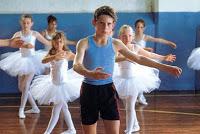
4. Far be it from me to cast aspersions on directors who share my name, but I can say a lot of the same things about Stephen Daldry’s work on Billy Elliot. I enjoyed the hell out of this movie, and not a little because of my own kids’ dedication to and attachment to ballet. It’s the sort of story in which we can guess where things are going, and happily a coming-of-age story that doesn’t rely on sex or death to make its point. But what, beyond a few good sequences, did Daldry really do here to deserve a nomination? I like the movie and I like that it got some attention, but not for this award.
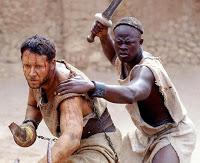
3. Now, we’re going to get to someone who doesn’t share my name. I’m putting Ridley Scott and Gladiator in third for a very specific reason. Where I have the most problem with Gladiator is specifically something that is the responsibility of Ridley Scott. When there are battle sequences in a movie, I want to see the damn battle. Scott’s direction here doesn’t allow for that. Instead, we’re given jittery action sequences that are hard to follow and end up being little more than flashing images on the screen. This is an action movie where the action is hard to watch. That seems like a serious flaw.
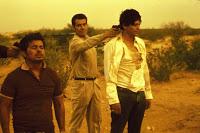
2. As I said above, it wasn’t a surprise that Steven Soderbergh ended up winning this Oscar because he had two of the five nominations. The tale of Traffic is that it’s the tale of two “hands.” I respect that it is even-handed in its treatment of the real problem of the drug war. The blame is firmly placed on everyone. That said, it is also incredibly heavy-handed in terms of the message it wants to present to people. If you don’t get the message from this film, you’re not paying attention, because it’s applied with all of the delicacy of Oliver Stone inserting symbols into his narrative. I like the movie, but once again, I don’t think it deserved a nomination for Best Director.
My Choice
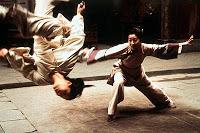
1. In a completely open field, there would be four different nominations from me. The one that would make my personal cut is Crouching Tiger, Hidden Dragon, which remains both a beautiful film, and one that is narratively strong and wonderfully told by Ang Lee. I could argue for Aronofsky here, and I could make a case for Mary Harron and Christopher Nolan. In an open field, it would come down to Lee and Aronofsky for me, but I think most of the time I would still go with Lee for just how beautifully the story is told and how clearly and wonderfully he addresses every aspect of story and character throughout. And, as has always been the case on this blog, the tie goes to the Academy.
Final Analysis
